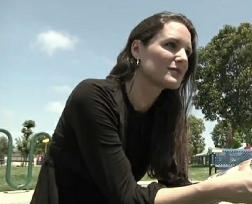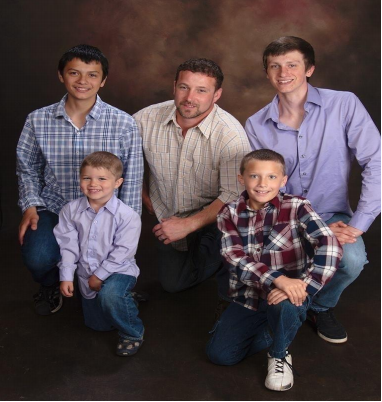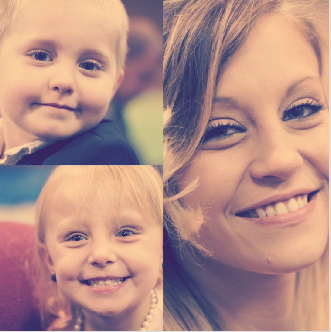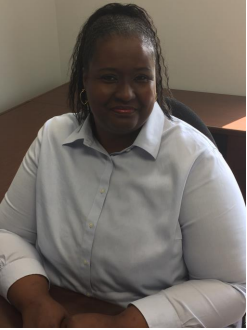China was 16 years old when she started using drugs. It wasn’t the typical rebellious teenage act we’d assume. It was a way to cope, to escape the pain of sexual abuse.
It was the same for Taylor. She remembered visiting her mom when she was three years old. Her mom was a Heroin addict and had chosen the drugs over her.
Tisha’s story is a lot like this, too… and Jennifer’s… and James’. They grew up surrounded by drug use, domestic violence, and homelessness. They had few healthy and caring adults they could turn to, and then they graduated high school… or didn’t. Many times no one really noticed anyways.
Children became adults before their time and reached out to whoever was willing and available. They clung to unhealthy relationships and habits and became parents themselves. In their children, they saw the face of purity and unconditional love. They held them close… as much for themselves as for the baby they brought into this world. Then it happened.
A concerned neighbor, a school nurse, an angry ex. The report was made and their child removed. Many times they never had a chance to bring them home from the hospital. They would need to straighten their lives out to get them back.
 I remember when they buckled her into her car seat and they backed out of my driveway. And I remember spending that first night… not with her; not singing her a lullaby or reading her a book or anything like that. She wasn’t there. And the reason she wasn’t there is because I was using drugs.
I remember when they buckled her into her car seat and they backed out of my driveway. And I remember spending that first night… not with her; not singing her a lullaby or reading her a book or anything like that. She wasn’t there. And the reason she wasn’t there is because I was using drugs.
-China Darrington, Birth Parent
http://parentbase.org/episode012/ [Start at 13:15]
 When my daughter was taken out of my care she was placed out of the city. With no money, no job, no car, and very little support, visiting her was always a challenge. I was in a very dark place.
When my daughter was taken out of my care she was placed out of the city. With no money, no job, no car, and very little support, visiting her was always a challenge. I was in a very dark place.
-L. Leah Phoenix, Birth Mother
I’ve had the privilege of sitting with dozens of birth parents who have had their children placed into foster care. Time after time the love they have for their children clashes with the despair of their circumstances. They are provided services that are meant to help, but these quickly become an overwhelming checklist of all the things they need to accomplish to have their children returned. They have 6-12 months to rebuild a life.
 Housing and maintaining employment. These were goals that I needed to achieve and the system is just not built for helping single dads. It was also hard for me to ask people for things. Once I started to get involved in the community with other parents like me, I got help with housing right away. Additionally, I was lucky to have skills to fall back on for work, most people don’t.
Housing and maintaining employment. These were goals that I needed to achieve and the system is just not built for helping single dads. It was also hard for me to ask people for things. Once I started to get involved in the community with other parents like me, I got help with housing right away. Additionally, I was lucky to have skills to fall back on for work, most people don’t.
-Shayne Rochester, Birth Parent
So they get started… eventually. That’s really the first obstacle for every birth parent is getting past the shock and protest of having their child removed. There’s a cycle of grief that every parent goes through. Often they return to unhealthy coping skills such as drugs or alcohol. Next is the anger and denial. They want to fight… prove that their child was unjustly removed from their care. They yell at the case manager, refuse to cooperate with services, and blame others. Then, hopefully sooner than later, they begin the alignment phase. Whether they agree or not, they’ll need to demonstrate progress on a list of “behavioral objectives” defined by their case manager. This may include parenting classes, random drug testing, supervised visits with their children, individual counseling, or any number of measures put into place to help minimize their children’s exposure to abuse or neglect.
 I struggled with getting up early for classes, taking city busses, attending weekly meetings and drug screenings, and doing all of this without a vehicle to get me there. I had trainings almost every day of the week.
I struggled with getting up early for classes, taking city busses, attending weekly meetings and drug screenings, and doing all of this without a vehicle to get me there. I had trainings almost every day of the week.
-Meghan Shepherd, Birth Parent
For many, the greatest challenge is finding that person who believes in them. This is a common thread in the stories of those parents who succeed… a champion steps into their story. Sometimes a family member or close friend steps in to help, but many times those relationships are unhealthy or fragile at best. So it’s a case manager who goes above and beyond their administrative duties to capture the heart. “I believe in you.” “I’m here to help.” “Your children deserve you.” It may also be a neighbor, an employer, landlord, or the foster parents who are caring for their children. Some parents find their champion early on in the process… some never do.
 I felt stigmatized for a variety of reasons. I felt that I received disparate treatment for being a former drug abuser, for being a single mother, for being African American, and for suffering from crippling poverty and homelessness… The true struggles I faced were trying to understand the court proceedings and getting through them.
I felt stigmatized for a variety of reasons. I felt that I received disparate treatment for being a former drug abuser, for being a single mother, for being African American, and for suffering from crippling poverty and homelessness… The true struggles I faced were trying to understand the court proceedings and getting through them.
-Suzanne Sellers, Birth Parent
For nearly half of parents, this process ends in their rights being severed[1]. Some will spend months or years complying with drug tests, attending visits, and completing parenting courses only to have their fate sit in the hands of a public attorney. A good attorney helps a parent tell their story of progress, presents documentation to the court, and counsels parents in how to move forward in their case. Some parents, however, don’t hear from their attorneys until 5-10 minutes before court, quickly updating them on their progress from the previous six months.
There are stories of hope. All the parents mentioned in this article were reunited with their children. They went on to start non-profits, to write books, to become peer mentors, and to be nationally recognized. Their stories changed when someone stepped into their lives and believed in them, walked alongside them, and didn’t let them give up on themselves. I’m constantly overwhelmed at the selfless service of those front-line champions in child welfare. I see case managers, foster parents, parent aides, and non-profit leaders giving their lives for a cause they believe in: hope. I’ve seen parents succeed against all odds and families restored. It’s beautiful.
Joe Mason the producer of a new podcast, “Helping Parents Succeed.” Subscribe to the podcast by clicking here to hear first-hand interviews with the parents mentioned in this article: http://parentbase.org/podcast-2/
[1] According to the DCS Semi-Annual Report, out of the 5,668 children exiting foster care from October 2016 to March 2017, 3,036 returned to their parent or primary caretaker. The current reunification rate for AZ is 53.6%. https://dcs.az.gov/file/7355/download?token=Pvv352dC
